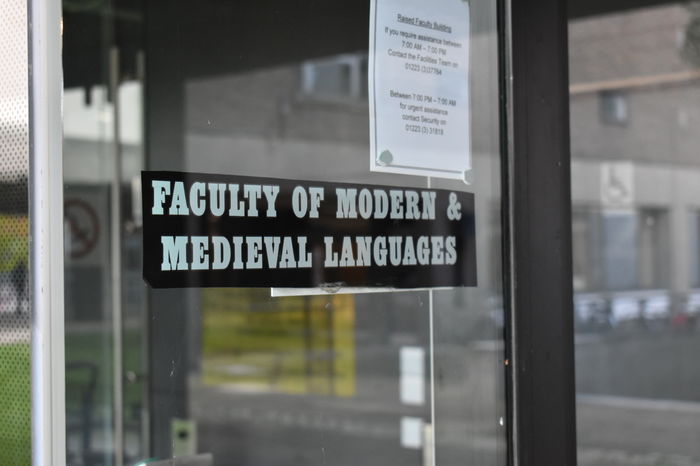52% fewer EU students accepted since Brexit
Some colleges demand fees of over £10,000 from international students

There has been a 52% decrease in the number of EU undergraduates accepted to Cambridge since Brexit, Varsity analysis of admissions data shows.
In the pre-Brexit period (2016-2020), an average of 311 EU students were enrolled onto undergraduate courses at Cambridge per academic year. This dropped to an average of just 149 students in the three years following the UK’s exit from the EU (2021-2023).
In the academic year 2021/22, the home fee status of EU students was removed, forcing them to start paying the same, higher fees as other, non-EU international students studying in the UK.
That year, 170 undergrads from EU countries enrolled at Cambridge, compared to 312 in 2019/20 and 245 in 2020/21. The number of EU students accepted to Cambridge in more recent years shows no sign of a return to pre-Brexit levels.
A Cambridge University Scandinavian Society spokesperson told Varsity that there had been a noticeable drop in the number of Scandinavian undergraduates. They said: “It’s very clear that the implementation of international fees has discouraged EU students from applying.”
They also recalled that they had met many high school students while carrying out outreach work in Denmark, who had been keen to study at universities like Cambridge, but “tended to be put off by the financial burden and lack of funding”. Instead, they said, Danish students were more likely to consider postgraduate study here after finishing their undergraduate degree at home.
Although both Labour and the Conservatives shut down proposals for a UK-EU youth mobility scheme last year, recent reports suggest that the Labour government is looking at a modified version of the scheme which would allow more European students to come to the UK without a return to freedom of movement.
However, Jamie Arrowsmith, head of Universities UK International told Research Professional News that a scheme offering “unrestricted access to full undergraduate programmes, on the same terms as domestic students” could be “difficult for the government to agree to” given the financial state of the UK’s higher education sector.
Many British universities are in financial deficit, and rely on international students’ high fees to cross-subsidise domestic students.
In addition to having to pay international fees, EU students without settled or pre-settled status in the UK no longer have access to tuition fee loans or maintenance loans. First-year student Johanna Trejtnar, who is Czech, said that, without going through “very competitive processes for private scholarships,” studying in the UK is now “completely inaccessible” to most Czech students.
While some of her friends were forced to turn down offers to study at top UK universities because they were unable to fund them, Trejtnar “was lucky to get a scholarship from the Cambridge Trust” which opened its scholarships to international students for the first time this year. “Only 10% of accepted students get this scholarship; if I hadn’t gotten it, I would not have been able to come to Cambridge,” she said.
Since Brexit, some European countries have also reduced or cut financial support for undergraduates studying in the UK. Previously German scholarships supported undergraduates with “€10,000 per year for university fees and a living cost stipend on top”, meaning it cost no more to study at Cambridge than at a German university, but now “scholarships only fund postgraduate studies in the UK,” a Cambridge University German Society spokesperson told Varsity.
“While I knew German undergrads, who started studying in the UK before Brexit and were fully funded by scholarships, the German undergrads I know now either have pre-settled status or are entirely self-funded,” they continued.
Several students also cited college fees as another cost making financing an undergraduate degree at Cambridge increasingly difficult.
While home students only pay a government-regulated tuition fee, international students are required to pay a college fee on top of their course-dependent tuition fee. These fees currently range between £10,017 per year at Darwin and £13,950 per year at Murray Edwards.
UK students, including those at the University, have also faced reduced opportunities to study in the EU since Brexit. The Turing Scheme, a replacement for the Erasmus+ Scheme, is intended to provide financial support for students working or studying abroad. However, some students at Cambridge have been unable to gain access to funding.
The University of Cambridge was contacted for comment.
Want to share your thoughts on this article? Send us a letter to letters@varsity.co.uk or by using this form.
 News / Eight Cambridge researchers awarded €17m in ERC research grants27 December 2025
News / Eight Cambridge researchers awarded €17m in ERC research grants27 December 2025 News / Downing investigates ‘mysterious’ underground burial vault 29 December 2025
News / Downing investigates ‘mysterious’ underground burial vault 29 December 2025 News / News in Brief: carols, card games, and canine calamities28 December 2025
News / News in Brief: carols, card games, and canine calamities28 December 2025 Sport / Hard work, heartbreak and hope: international gymnast Maddie Marshall’s journey 29 December 2025
Sport / Hard work, heartbreak and hope: international gymnast Maddie Marshall’s journey 29 December 2025 Interviews / Meet Juan Michel, Cambridge’s multilingual musician29 December 2025
Interviews / Meet Juan Michel, Cambridge’s multilingual musician29 December 2025







